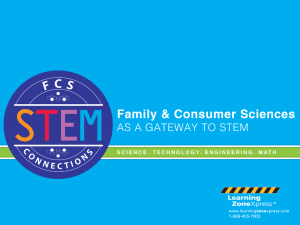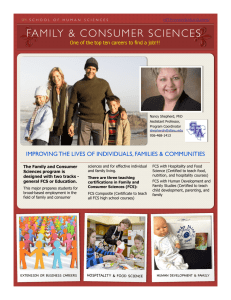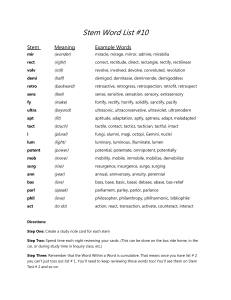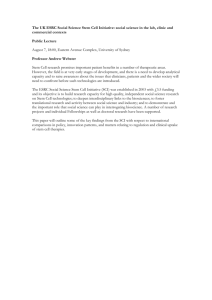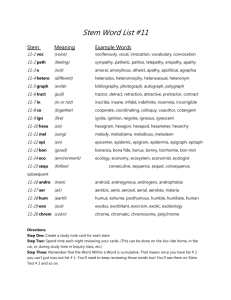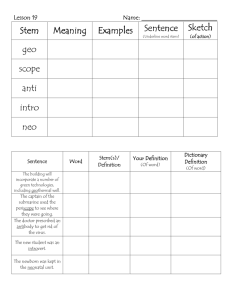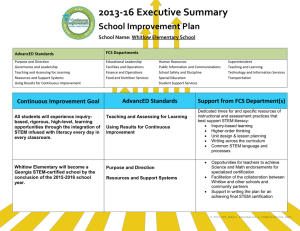FREE Downloadable STEM PowerPoint
advertisement
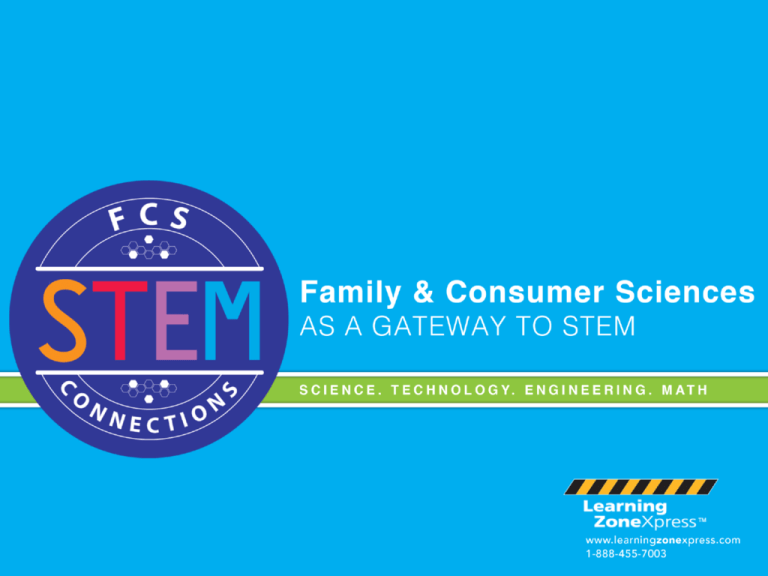
What is STEM? STEM can be… An acronym for Science, Technology, Engineering & Math 1. Interdisciplinary – formal, physical, life, social, & applied science 2. Curriculum driven by problem-solving, discovery, exploratory learning, active learning to find solutions 3. “a meta-discipline” transforming subject matter by incorporating technology & engineering Ellen Richards Founded Family & Consumer Sciences Ellen Swallow Richards FCS Pioneer 1842-1911 • Ellen lived 1842-1911 when filth, disease & suffering was common. Only half of the children lived to adulthood. • Ellen became a scientist, philosopher and change agent at MIT. • She felt science and research would have a stronger impact if it applied to improve living environments. Our first STEM connection… • She was dedicated to this new field of connecting scientific knowledge to practical applications. • She addressed food safety, water quality and safe home environments. Overall STEM Education… • Integrates science, technology, engineering, & math into one learning experience • Uses project-based learning • Reinforces real world application • Prepares students for integrated careers • Develops “soft” & technical skills Soft Skills “personal qualities, habits, attitudes & social behaviors that make an individual a good employee” • Verbal/written communication skills • Leadership skills • Organization skills • Curiosity & imagination • Technology experience • • • • • Teamwork skills Time management Following directions Desire to learn Creative problem-solving skills Curricular Attributes STEM FACS • Challenging Curriculum • Challenging Curriculum • Inquiry-Based Learning • Inquiry-Based Learning • Defined Outcomes • Defined Outcomes • Sustained Commitment/Community Involvement • Sustained Commitment/Community Involvement “STEM-ifying” FCS Problems (Scientific Method) Ask a Question Do Background Research Construct a Hypothesis Test your Hypothesis by Doing an Experiment Analyze your Data and Draw a Conclusion Report your Results “STEM-ifying” FCS Problems (Engineering Approach) Identify Problem Brainstorm Design Build, Redesign, Test, and Evaluate Share Solution All FCS Careers are All FCS Careers Based in …. are CONTENT KNOWLEDGE based in… Family & Consumer Sciences Biology Economics Design Sociology (financial literacy) Business Nutrition Architecture (housing styles) Chemistry Psychology Engineering (cooking/baking) (consumer decision making) (fashion/textiles) Anthropology (family studies) (family studies) Communications & Media Microbiology Food Safety Ecology Physics Technology Strong relationships ECOLOGY STEM Career Connections Integrated Content: • Kitchen Math • Food Chemistry • Reality Learning vs. Abstract Math Problems • Financial Literacy • Problem Solving and Synthesis • Interdisciplinary Content …and more! Students Say… Students Say… • “When I think about FACS, I feel that I am going to learn something that will help me for the rest of my life.” • “The most important thing that I learned in FACS class, that I feel I will take with me and will help me the most, is learning about different careers, colleges, and degrees.” • “The hands-on project work in FACS helped me to have confidence in my actions.” FCS is STEM Education
